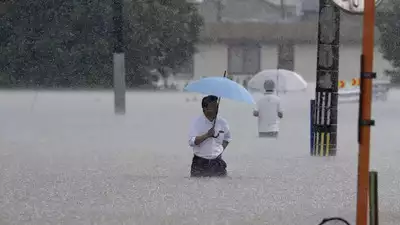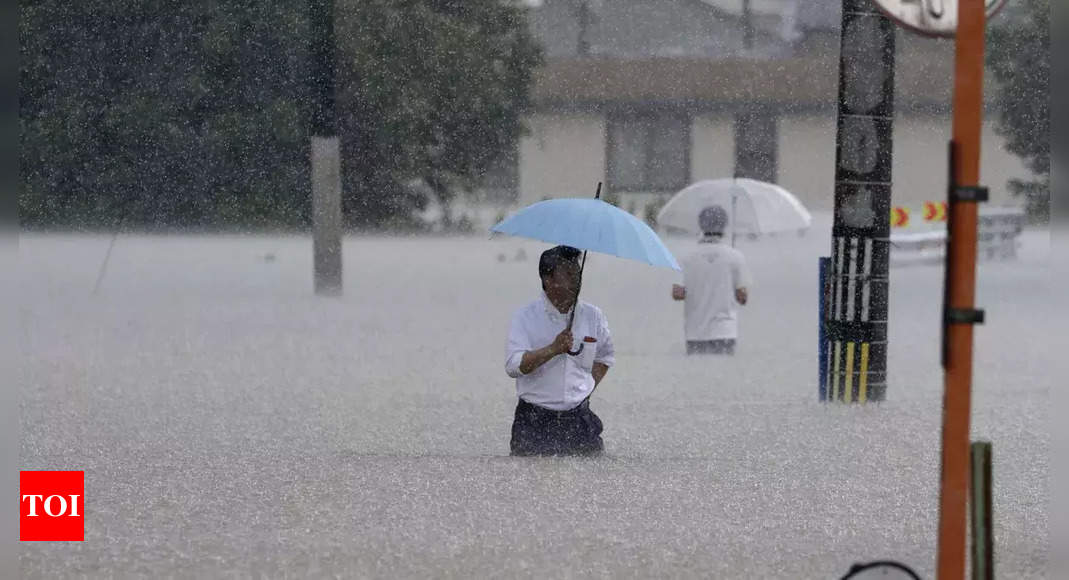[ad_1]

NEW DELHI: Risk of death was found to rise in the wake of an extreme rainfall event, including death due to heart and lung conditions, according to a study. With climate change making short-term rainfall events more extreme and frequent, there is emerging evidence that suggests a compelling link between these events and their adverse effects on health, especially the spread of infectious diseases, researchers said based on a study of over 62,000 rainfall events across the globe.
The study by the team, including researchers from the German Research Center for Environmental Health, provides a global perspective of how extreme rainfall events can impact health, they said.
They looked at the data of daily deaths and rainfall from 645 locations from across 34 countries and regions, recorded from 1980 to 2020. A total of over 100 million deaths from any cause, and more than 31 million and 11.5 million deaths due to heart and lung conditions, respectively, were analysed.
A day of extreme rainfall, that could likely recur over the following five years, was linked with an eight per cent increase in deaths due to any cause over the 14 days following the extreme weather event.
Such an event was also related with a five per cent increase in cardiovascular deaths and a nearly 30 per cent increase in lung-related mortality in the fortnight following the rainfall.
“Daily rainfall intensity is associated with varying health effects, with extreme events linked to an increasing relative risk for all cause, cardiovascular, and respiratory mortality. The observed associations varied with local climate and urban infrastructure,” the authors wrote in the study published in the British Medical Journal.
Acknowledging the limitations of the research, the team said the study was observational and thus, could not draw cause-and-effect conclusions. Further, locations analysed were largely in east Asia, Europe, and North America, they added.
The findings, however, highlighted the need for coordinated public health strategies targeted at the health impacts of extreme rainfall, the authors said.
“This is especially important considering the well established trend of increasing short term rainfall intensity as a result of climate change,” they wrote.
[ad_2]
Source link
